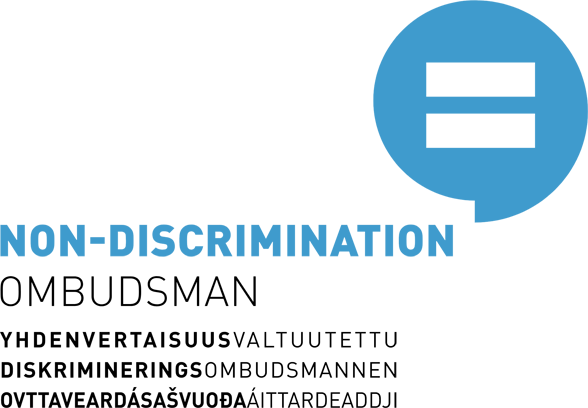Private services
Private services cover a wide range of different kinds of goods and services offered to the public. Private services include for example shops, flea markets and car dealers, financial and insurance services as well as airline traffic and restaurant services, among other things.
Everyone is entitled to equal treatment in private services. Every year, the Non-Discrimination Ombudsman receives many complaints about discrimination experienced in private services.
Discrimination in private services may include, for instance:
- Refusal to allow an assistance dog inside a shop or restaurant
- A guard following a person who is a member of an ethnic minority in a shop
- Refusal to let a person into a restaurant due to their religion or clothing worn for religious reasons
- Failing to make reasonable accommodations for person with disability
- A certain group, such as foreigners or students, is excluded in a housing advertisement
- A wheelchair space to an event can only be purchased from a telephone number with a call charge
Customers cannot be selected based on discriminatory grounds
Sometimes, discrimination derives from the misconception that providers of goods or services could select their customers completely freely. Shops and restaurants can choose their customers, but the grounds can not be discriminatory, such as based on origin, disability of sexual orientation.
Under the Non-Discrimination Act, nobody may be discriminated against on the basis of their age, origin, nationality, language, religion, belief, opinion, political activity, trade union activity, family relationships, state of health, disability, sexual orientation or other personal characteristics.
In addition to the Non-discrimination Act, the Criminal Code also prohibits the selection of customers on discriminatory grounds. Therefore, choosing customers on discriminatory grounds may constitute an offence.
Order or instruction to discriminate are also prohibited by the Non-discrimination Act
Order or instruction to discriminate constitute discrimination prohibited by the Non-discrimination Act. Sometimes the refusal to provide services is due to order or instruction to discriminate given by a superior to the employee. For example, the superior may instruct the employees not to let people into a restaurant with an assistance dog. Order or instruction to discriminate constitute discrimination prohibited by the Non-discrimination Act, even if no employee has followed it yet. If an employee follows such order or instruction, the employee is also guilty of discrimination.
More equal service with reasonable accommodations
Private services are also obliged to provide reasonable accommodations. Reasonable accommodations are measures taken case-by-case to ensure that a person with a disability can receive goods and services, among other things, on equal terms with others.
The reasonable accomodations are assessed on a case-by-case basis, and the accommodations can be implemented in different ways in different situations. Reasonable accommodations depend on factors such as the size and financial position of the operator: more can be expected of large operators. Reasonable accommodations may include, for example:
- Installing a temporary ramp at the door so that a person using a wheelchair can enter the shop like the other customers,
- In a movie theatre, reasonable accommodations may mean that the assistant of a person with a disability can accompany them to the movie free of charge,
- In a restaurant, reasonable accommodations may involve, for example, reading the restaurant menu out loud for a person with visual impairment or offering the list in braille.
Everyone is entitled to equal treatment in private services
You are entitled to equal treatment as a customer and user of private services. This means that personal characteristics, such as disability, sexual orientation or origin, should not affect how you are served. Discrimination is prohibited both by the Non-discrimination Act and the Criminal Code.
Typically, discrimination in private services manifests as refusing to serve a person due to a personal characteristic or providing them more limited services than others. This may mean, for example, that a certain group such as foreigners are not allowed into a restaurant due to their origin.
Discrimination may also mean that while a person can enter a restaurant or a shop, they do not receive as good service as the other customers due to a personal characteristic. This may manifest for example as requiring foreigners to pay at a filling station before filling the car up with petrol, or a guard following members of a certain minority group without a reason.
- The prohibition of discrimination also applies to the banking and insurance sector. For example, when granting insurance policies, stereotyped risk assessments that are in conflict with the equality principle as well as policies based on them are prohibited. For example, refusing to grant an insurance policy due to a specific diagnosis or disability is prohibited.
- When granting credit, the credit rating must also be assessed on an individual basis.
- In banking services, a person cannot be required to have a passport or an identity card granted by a Finnish authority. It is enough if you have an identity card granted by a member state of the European Union, for instance.
- You have the right to take an official guide or assistance dog with you to a shop or restaurant, among other places. Refusal to allow this constitutes discrimination.



